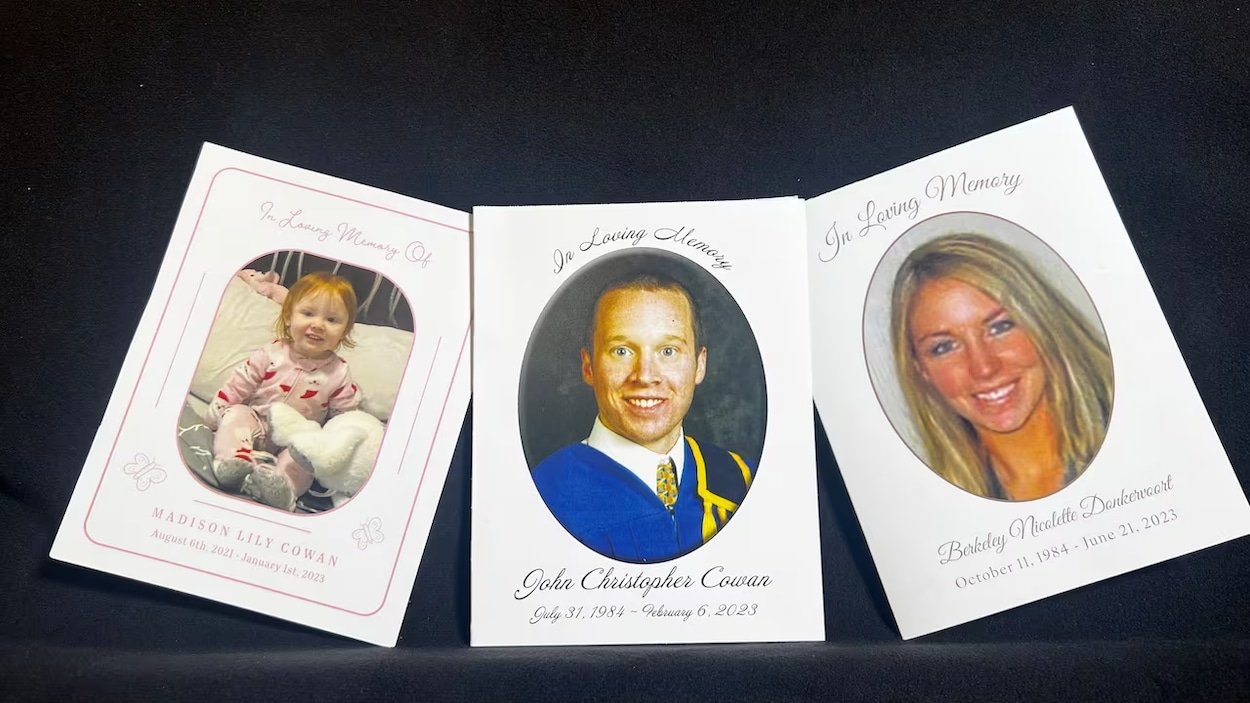In Saskatchewan, relatives of a family whose members died of a suspected overdose are decrying the lack of support for addicted parents. Anne Doig believes such support could have helped her son John Cowan, daughter-in-law Berkeley Donkervoort and granddaughter Madison Cowan.
The parents and their daughter died within six months of each other, says Anne Doig, adding that since her granddaughter was born she had worried about the difficulties the child would face given his parents’ dependency.
“It’s a terrible thought, but without significant intervention over a long period of time, this little girl’s hope of a normal life was in jeopardy,” complains Anne Doig, a retired family doctor.
She says her son studied piping in Alberta, but a head injury sustained in a car accident left him unable to pursue his career.
For her part, Berkeley Donkervoort’s mother, Susan Donkervoort, explains that her daughter was a dental hygienist. She assumes that the latter had consumed fentanyl for eight years before her death.

Open in full screen mode
Anne Doig holds the sympathy cards for her granddaughter, her son and her partner, who died of a suspected overdose in the first half of 2023.
Photo: Radio-Canada / Sam Samson
Anne Doig says documents from the Saskatchewan Coroners Service show her granddaughter had fentanyl, carfentanil and benzodiazepines in her stomach when she died.
John Cowan died shortly afterwards. Anne Doig said that in addition to “medications bought on the street,” her son also took quetiapine, a drug used to treat psychotic disorders or as a sedative for addicts.
A few months after the death of John Cowan, Berkeley Donkervoort lost his life after consuming fentanyl and benzodiazepines, as stated by his mother, Susan Donkervoort.

Open in full screen mode
The couple started dating in 2015. Berkeley Donkervoort became pregnant around Christmas 2020.
Photo: Provided by Susan Donkervoort
Anne Doig says her family’s tragic fate could have been avoided in other cases. However, she believes Saskatchewan’s current child protection system cannot handle such a situation.
You can’t help someone who doesn’t want to be helped, but I think the rules change when it comes to a baby.
She believes a reliable, controlled source of drugs for addicts could stop them from consuming what she calls “contaminated garbage.”
In an email to CBC/Radio-Canada, Saskatchewan Health says it is focused on treatment and recovery to deal with addiction.
The Government of Saskatchewan has no plans to provide illicit drugs through the public health system, a ministry spokesperson writes.
Adapt to different situations
According to University of Toronto and Center for Addiction and Mental Health addiction specialist Peter Selby, every family and every situation is different.
Just because someone has an addiction doesn’t mean they have to lose custody of the child forever, but it may mean that they require other people to make sure the child grows up safely, the expert explains.
The latter believes that state authorities should intervene when parents are unable to care for their children.
Addiction is reversible and people can recover. “I’ve experienced something like this many times,” he says.
If we don’t invest now, I have a feeling we will lose an entire generation.
According to him, taking children away from their drug-using mothers reinforces prejudice and the idea that she is a bad mother.
Instead, Peter Selby says authorities need to re-examine how they provide support to pregnant women who need help with their drug addictions.
With information from Sam Samson

